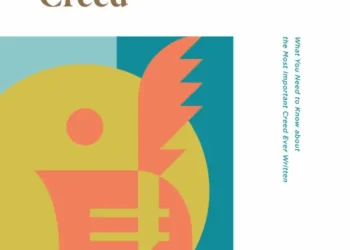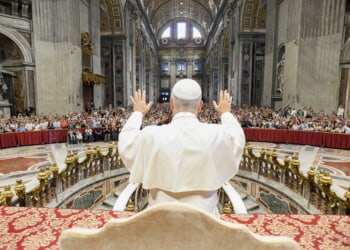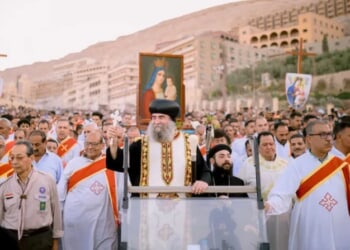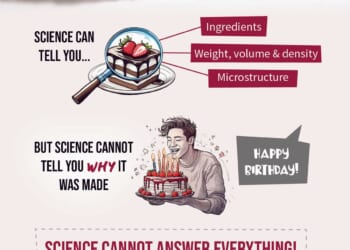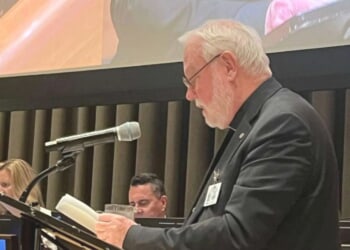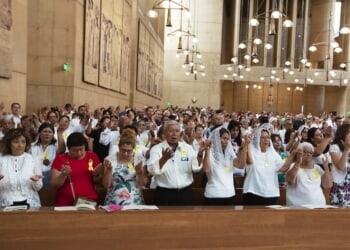CNA Newsroom, Aug 16, 2025 /
07:00 am
As artificial intelligence (AI) has become more widespread, a Catholic bioethics expert is warning against the dangers posed by it, saying it’s “not too late” to “put the genie back in the bottle” and avoid the worst effects of the new technology.
Pope Leo XIV has already warned that AI could have negative effects on the development of young people and contribute to a “loss of the sense of the human.”
“He took the name Leo XIV to connect himself to Leo XIII, who himself was dealing with the Industrial Revolution of the late century, which totally transformed culture,” moral theologian Charles Camosy, a bioethics professor at the Catholic University of America and an acclaimed author, told “EWTN News In-Depth” Anchor Catherine Hadro on Aug. 15.
“We’re undergoing right now a similar technological change that is going to totally transform the culture,” Camosy said. “How do we respond?”
Camosy recently wrote a story for the Atlantic in which he argued that addressing artificial intelligence “could be the most ambitious and enduring project of Pope Leo XIV’s legacy.”
AI is “going to impact nearly every part of our culture,” Camosy noted, adding that “people often can’t tell the difference when they’re talking to a human being or a chatbot.”
“To the extent that we have any confusion about that, that’s really super worrisome, because we need to hold on to this idea that we’re fundamentally different from a large language model,” he said.
“We are flesh and blood made in the image and likeness of God with a soul that reflects a relationship that can’t possibly be present in a chatbot.”
With an ongoing loneliness epidemic, people are already vulnerable, he noted.
Camosy remarked that if individuals are living in a world where, “addicted to their smartphones,” they are unable to communicate authentically and lack friends who can respond genuinely, they can become “vulnerable to a very articulate chatbot.”
He said AI chatbots are not just “stepping in to fill the void, but doing so in ways that at least imitate the need that all of us have for intimacy, for somebody to care about us.”
It is something that the Church has been addressing for some time via working groups on AI, Camosy noted.
“You could argue that the Church has been ahead of the broader culture on AI because these groups have been around for some years,” he said.
Camosy referred to the Vatican document Antiqua et Nova: Note on the Relationship Between Artificial Intelligence and Human Intelligence as a Catholic resource on AI.
“I suspect, but don’t know for sure, that our current Holy Father is at least in the early stages of putting something like that together,” he continued.
(Story continues below)
Subscribe to our daily newsletter
“It’s not just AI,” he said, noting that the AI discussion ties into the “advent of transhumanism.”
Transhumanism is a scientific and cultural movement proposing the modification of human biology through technology, potentially blurring the lines between the artificial and the real.
“We’re in this really important cultural moment where this second industrial revolution is right on the cusp of happening. Thank God we have someone like Pope Leo” to lead the Church through it, Camosy said.
He pointed to grand claims that AI will eventually help human beings move away from work altogether. But work, he pointed out, is “an integral part of the human experience.”
“We need protections for work. We need protections for workers,” he said. “It’s not too late to put the genie back in the bottle on this one. We have to create a culture that shapes AI to serve human beings, not the other way around.”





